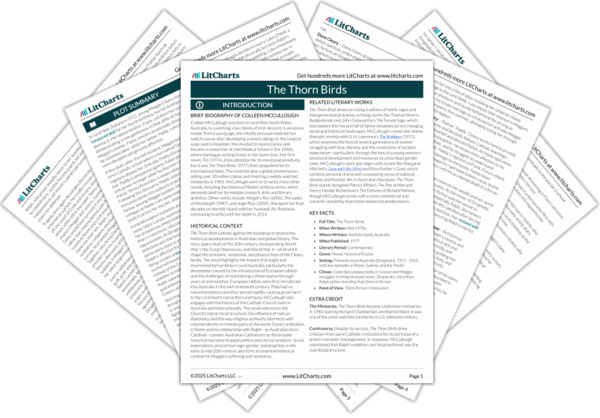The siblings’ walk to school shows the small freedoms they get to enjoy. Each child moves with energy and familiarity, navigating the land like it belongs to them. Meggie, though smaller, is part of the group. When she starts to fall behind, Bob carries her without hesitation. That moment of care is important, as it shows that, however harsh the Clearys may be at times, they are still a still. Their approach to Wahine—with its separate churches, quiet order, and watchful nuns—marks a turn. From this point forward, they answer to someone else’s expectations.
